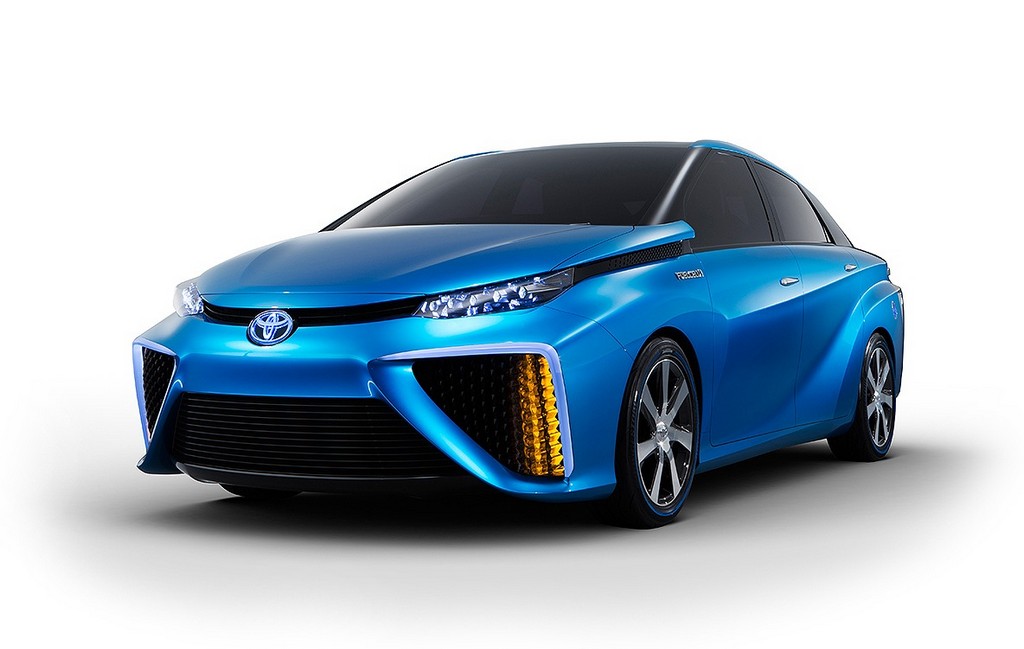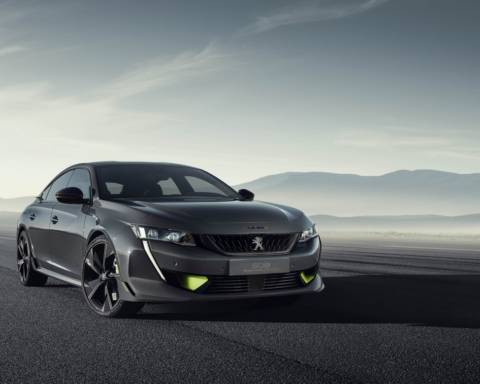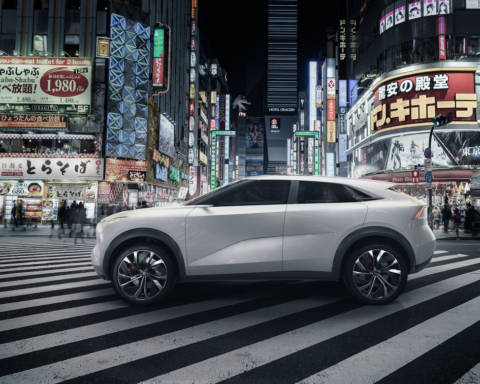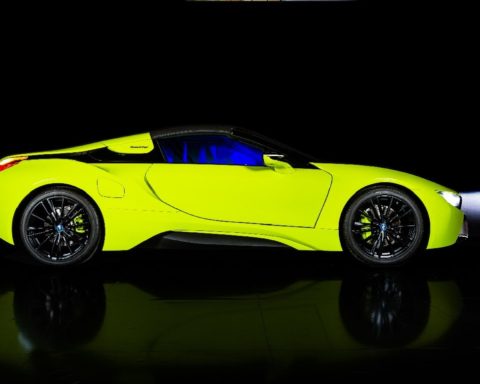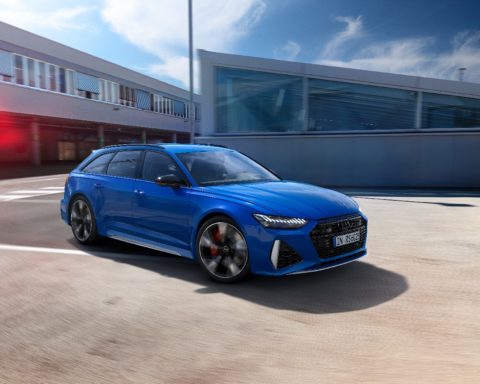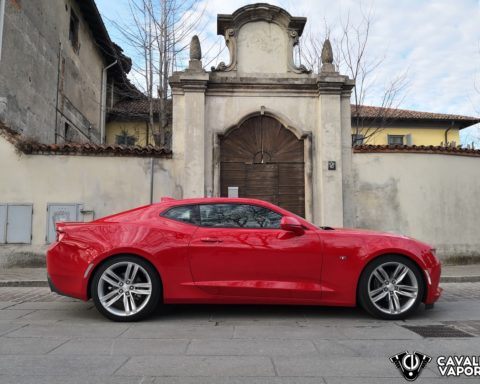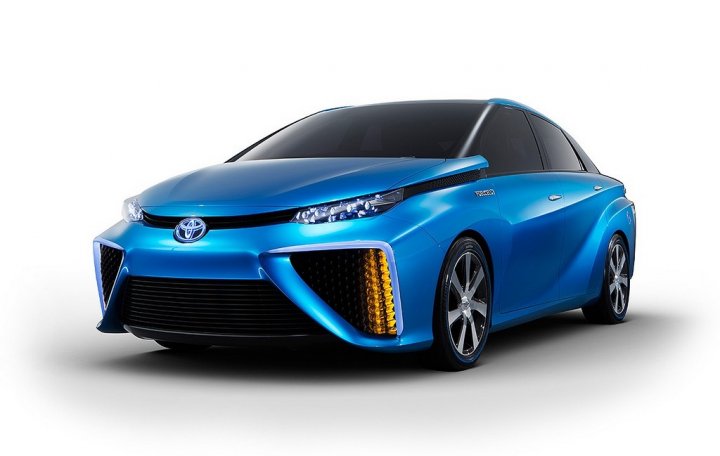
Toyota FCV – Due veicoli sono stati presentati al CES di Las Vegas da Toyota: il concept FCV, berlina quattro porte, e il prototipo, della stessa vettura, utilizzato per un intensivo test lungo le strade del Nord America per più di un anno. Il prototipo ha una percorrenza di circa 480 Km e raggiunge i 100 Km/h in 10 secondi. Fino a qui nulla di “straordinario”… L’eccezionalità del prototipo sta nella alimentazione. La vettura è mossa da un motore ad idrogeno che ha emette solo vapore acqueo. La FCV ha lo stesso “cuore” e la stessa teconologia hybrida della Prius, ma con celle combustibili ed idrogeno.
Negli ultimi venti anni la Toyota ha effettuato investimenti massivi nella ricerca e sviluppo di questa tecnologia e dal 2002 sta testando e sviluppando una serie di prototipi in Nord America. In questi 11 anni ha abbattuto drasticamente i costi per la realizzazione di motori a celle combustibile, riducendosi di circa il 95% dall’inizio.
Il concept FCV Toyota ha la capacità, con serbatoio pieno, di produrre tanta energia sufficiente ad alimentare una casa per una settimana e in Toyota stanno pensando di equipaggiare la vettura anche per queste evenienze, rendendola di fatto un generatore di corrente.
La vettura verrà messa in commercio nel 2015, inizialmente in California, che ha stanziato finanziamenti per costruire le stazioni di rifornimento; rifornimento che nel caso della FCV avviene in circa 5 minuti.
English Version: Two vehicles shared the stage at the Toyota press conference: The FCV concept, showing what the four-door mid-size sedan will look like in Radiant Blue; and the camouflage-taped engineering prototype used for extensive and extreme on-road testing in North America for more than a year. The prototype has consistently delivered a driving range of about 300 miles, zero-to-sixty acceleration of about 10 seconds, with no emissions, other than water vapor. Refueling of its hydrogen tanks takes three to five minutes.
For the last 20 years, Toyota’s investment in fuel cell R&D has been massive. Since 2002, Toyota has been testing and developing a series of prototypes in North America. In those 11 years – and more than a million miles – it has dramatically reduced the cost of building a fuel cell powertrain. In fact, Toyota estimates a 95-percent cost reduction in the powertrain and fuel tanks of the vehicle it will launch in 2015, compared to what it cost to build the original prototype in 2002.
The FCV represents a major engineering achievement, where the size and weight of its powertrain system was significantly reduced while maintaining an impressive total power output of more than 100kW. A fully-fueled vehicle will be capable of supplying enough energy to power a house for a week in an emergency. Engineers are currently looking to develop an external power supply device that could be used in this manner.
Focusing on California, where the vehicle will be launched initially, Toyota has partnered with the University of California Irvine’s Advanced Power and Energy Program (APEP) to help map out potential locations for new hydrogen fueling stations. Already, California has approved more than $200 million in funding to build about 20 new stations by 2015, a total of 40 by 2016, and as many as 100 by 2024.
foto e filmato: http://www.toyota.com/fuelcell/

